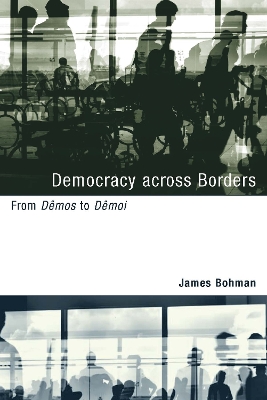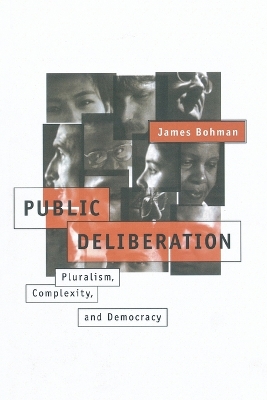Studies in Contemporary German Social Thought
3 total works
An innovative conception of democracy for an era of globalization and delegation of authority beyond the nation-state: rule by peoples across borders rather than by "the people" within a fixed jurisdiction.
Today democracy is both exalted as the "best means to realize human rights" and seen as weakened because of globalization and delegation of authority beyond the nation-state. In this provocative book, James Bohman argues that democracies face a period of renewal and transformation and that democracy itself needs redefinition according to a new transnational ideal. Democracy, he writes, should be rethought in the plural; it should no longer be understood as rule by the people (demos), singular, with a specific territorial identification and connotation, but as rule by peoples (demoi), across national boundaries. Bohman shows that this new conception of transnational democracy requires reexamination of such fundamental ideas as the people, the public, citizenship, human rights, and federalism, and he argues that it offers a feasible approach to realizing democracy in a globalized world.
In his account, Bohman establishes the conceptual foundations of transnational democracy by examining in detail current theories of democracy beyond the nation-state (including those proposed by Rawls, Habermas, Held, and Dryzek) and offers a deliberative alternative. He considers the importance of communicative freedom in the transnational public sphere (including networked communication over the Internet), human rights as the normative basis of transnational democracy, and the European Union as a transnational polity. Finally, he examines the relationship between peace and democracy, concluding that peace requires democratization on interacting state and suprastate levels.
Bohman develops a realistic model of deliberation by gradually introducing and analyzing the major tests facing deliberative democracy: cultural pluralism, social inequalities, social complexity, and community-wide biases and ideologies.
How can we create a vital and inclusive pluralistic democracy? Public Deliberation offers answers to this question by showing how democratic theory and democratic practice can be remade to face new challenges. Arguing against the skepticism about democracy that flourishes today on both ends of the political spectrum, James Bohman proposes a new model of public deliberation that will allow a renewed expansion of democratic practice, even in the face of increasing pluralism, inequality, and social complexity. Bohman builds on early Critical Theory and on the recent work of Jurgen Habermas and John Rawls (while taking into consideration criticisms of their work) to create a picture of a richer democratic practice based on the public reasoning of citizens. Starting with a pragmatic account of how deliberation actually works to promote agreements and cooperation, he develops a realistic model of deliberation by gradually introducing and analyzing the major tests facing deliberative democracy: cultural pluralism, social inequalities, social complexity, and community-wide biases and ideologies. The result is a new understanding of the ways in which public deliberation can be extended to meet the needs of modern societies.


